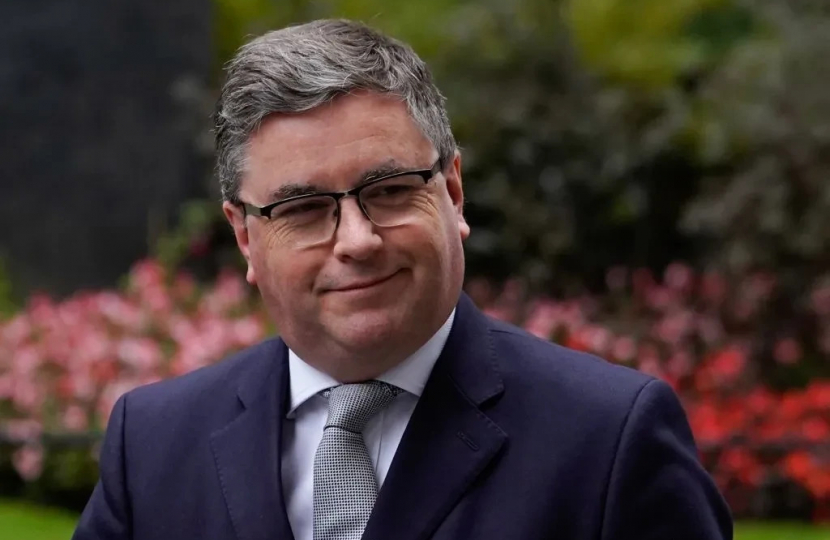
It is very tempting to view the current Tory leadership contest through the lens of previous elections. As MPs prepare for a barrage of entreaties from candidates and their teams, it is worth setting the context of this sudden election. Unlike the previous two contests, Brexit is not the number one issue. It is done, and there is no going back. This time, it is the economy, plain and simple. So-called “culture wars” issues are important, but no-one wants to fight a war on an empty stomach. Any candidate worth their salt has to place themselves firmly in the shoes of the people we serve. From my own extensive conversations with constituents, friends and family, the cost of living and the prospect of an economy that is slowing down are the issues that matter.
There is no doubt that Brexit changed the shape of electoral politics. What, then, is the nature of our support? We must remember that the historic majority we secured in 2019 was on the back of a One Nation programme of change for all parts of our country. Conservative voters are deeply patriotic, and whilst they are culturally conservative, they possess a deep sense of fairness and compassion for others. When it comes to the State, they don’t wake up each morning yearning for less Government. Instead, they are looking for better government. This must mean fewer civil servants, less waste and less unnecessary expenditure, but not the sort of indiscriminate withdrawal from interventionist activity that does not chime with their thinking.
Above all, Conservative voters are not stupid. They know that, in order for tax cuts to work and for the beast of inflation to be tamed then any reductions need to be funded. They believe in sound money and a Conservative Government that is prepared to take tough decisions and stick to a clear plan in order to achieve longer term gain. They want to see the books carefully balanced when it comes to current expenditure, but they are in full support of our longer-term Levelling Up agenda, which in Wales will be done via the near £600m Shared Prosperity Fund plus other packages directly funded by the Government. Government intervention, via longer-term borrowing, can be a catalyst for change and improvement, and we should not be afraid to say so.
At the heart of our values is a belief in our United Kingdom and a sense of deep pride at the success of our country. The Platinum Jubilee was a wonderful reminder of how potent that pride is. I lost count of the number of street parties and other celebrations I went to in Swindon last month, and I came away with a real sense that our Queen, with her matchless record of deep devotion to duty and public service, is not only respected but loved for setting that standard. Conservatives instinctively believe in duty, moral obligation and meaningful traditions handed down from generation to generation. Whilst we should be proud of all the diverse parts of our modern society, and that love and compassion must always prevail, we know what a woman is.
In the past year or so, the achievements we secured by delivering Brexit and our handling of the Covid crisis were eclipsed by political events that together created the damaging perception that we were not sticking to the high standards that we had set for ourselves and for the Country. The departure of Boris Johnson from Number 10 gives us a huge opportunity to reset all of this.
Firstly, all candidates in this election should sign up to a code of positive campaigning, mutual respect and honesty. To adapt Ronald Reagan’s famous Eleventh Commandment of Politics, we should never speak ill of a fellow Conservative.
Secondly, all candidates should demonstrate their fundamental belief in what Margaret Thatcher described as “freedom under the law”. This means a deep-seated respect for the Crown, our United Kingdom, the Judiciary and the other key institutions that underpin our democracy and society. The Tory Party is not an iconoclastic sect, hell-bent on disruption, division and destruction. We are here to preserve the ties that bind us together, and in the case of Northern Ireland, to be good stewards of the peace process that is now nearly twenty-five years old. Talk of withdrawal from the European Convention on Human Rights, which underpins the peace process, is at best naïve and at worst an abrogation of Britain’s European and global leadership. It is profoundly un-Conservative and must be resisted. Instead, we should seek to reform and fix any problems, for example with immigration law, rather than following Russia out of the door.
Thirdly, when it comes to the economy, let’s tell the truth. All candidates who make specific pledges on taxation should be able to demonstrate how they are to be funded. If we are not to be the stewards of sound money, balancing the books and the fight against inflation, then what are we here for? Instead of talking about high level tax rates, we should focus in on how the tax system penalises families with children on relatively low incomes, creating very high marginal tax rates. Any tax cuts should be focused on them.
Fourthly, all candidates should give priority to spending on policing and our justice system. When I was Lord Chancellor, I led reforms to sentencing law which included increasing the period during which violent and sexual offenders spent behind bars. For amounts of money that are tiny in comparison to those spent in other areas of state activity, our criminal justice system could thrive. We cannot allow our position as the party of Law and Order to be eclipsed.
Fifthly, protecting the public at home has to be matched by security abroad. British leadership in unifying the West and increasing spending has been a great success, but calls by Ben Wallace and others for more support and investment in our defences will have to be heeded in a world where the greatest threats come via our energy and food supplies and often in a cyber form. We must be prepared to fund our defences in a way that does not jeopardise the need to balance the books.
Finally, at the heart of it all has to be a deep optimism about the future of our country. I joined the Conservative Party in South Wales at the height of the Miners’ Strike, and have served it at every level, from Young Conservative, Party agent, Councillor, Association Chair, a Member of Parliament who won his seat from Labour, and Minister. The Tory Party is my extended family, and I have always believed that as the Party of the Nation, we have been a force of incredible good for Britain. This leadership election is a chance for those qualities to be demonstrated, both towards the public we serve and by setting examples of positive leadership within Government itself. Let’s find the person who can do this best, and quickly.
Robert Buckland is Secretary of State for Wales, and is a former Lord Chancellor and Solicitor General. He has been Conservative MP for South Swindon since 2010




